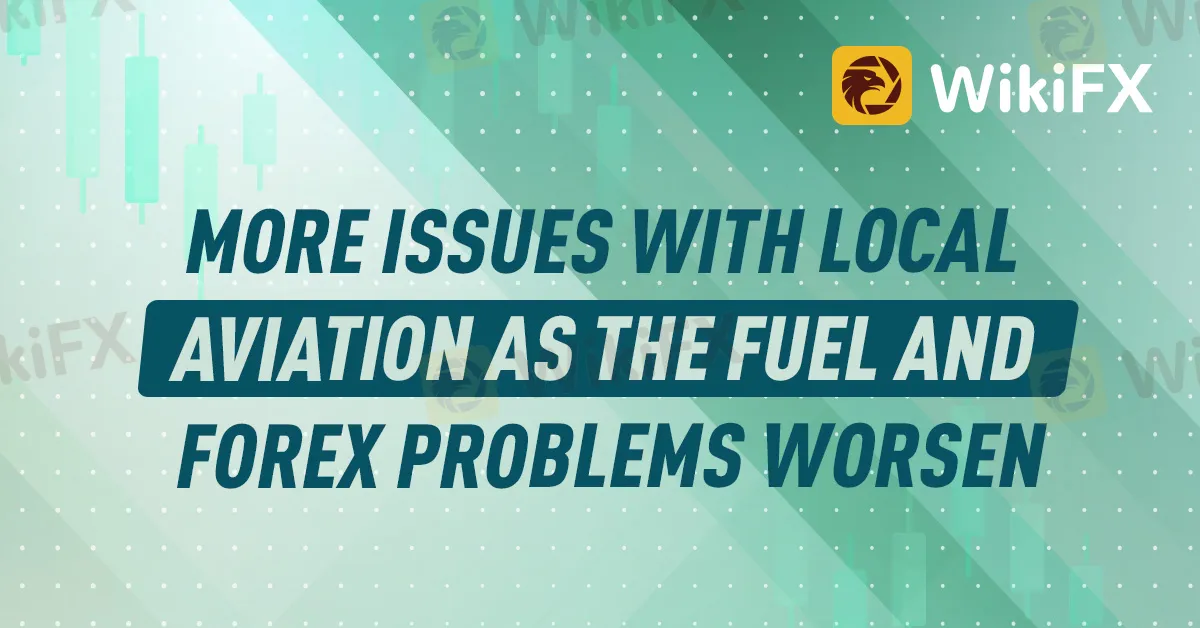Abstract:Low Fleet Capacity Causes Airfares to Rising and Route Network to Swell; Stakeholders Tell Operators to Sell What They Buy.

Low Fleet Capacity Causes Airfares to Rising and Route Network to Swell; Stakeholders Tell Operators to Sell What They Buy
Local flight travelers should prepare for worse times ahead with the price of aviation fuel at an all-time high and foreign exchange unavailable to fulfill commitments on time.
Operators have issued warnings that the severe scenario, which is now devouring the operations of airlines, will aggravate flight delays and cancellations, further restrict frequency and routes, and raise prices as more carriers fight to survive.
Aviation stakeholders have reportedly encouraged the operators, apparently in accord with the airlines, to evaluate the ticket subsidy methods and transmit the true costs to customers rather than “cutting corners” on high operational costs, which is against regular operating procedures.
The danger indicators are already visible throughout the industry. The oldest operational carrier in the nation, Aero Contractors, halted operations this week due to a lack of regular planned operations from its fleet. About eight of the airline's nine aircraft are on a waiting list for normal maintenance, but there isn't enough foreign cash to pay for replacement parts and fulfill obligations.
Dana Air operations were immediately halted by the Nigerian Civil Aviation Authority (NCAA) less than 24 hours after Aero shut down, alleging an inability to conduct safe operations.
The implications on local travel are evident as eight local carriers have suddenly replaced the previous ten. On the one hand, there are the lost travelers on less direct routes. High frequency routes, on the other hand, are now being impacted by high fares.
The majority of tickets on the popular Lagos, Abuja, Port Harcourt, Kano, and Kaduna routes are already sold out for the weekend and the first few days of next week, The Guardian has learned as of yesterday. When available, one-way economy seats cost between N75,000 and N110,000. Depending on the route, airline, and time of purchase, round-trip tickets cost between N130,000 and N180,000.
Akeem Oloyede, a regular traveler, bemoaned the astronomical increase in ticket. “It is annoying to pay the same prices for local and shorter vacations that we used to spend for international travels,” Oloyede added. You cannot afford it.
The uncertainty around whether or not the airline will run at all is the most aggravating aspect. I recently cancelled a trip to Owerri after the passengers waited for hours. The airline's management makes no apologies at all. What a shame!
One airline's COO remarked that the airlines were dealing with a variety of problems related to fuel and capacity restrictions.
He described how the defunct Dana Air had a network of daily flights on destinations like as Lagos, Abuja, Port Harcourt, Enugu, and Owerri, with a fleet of nine aircraft.
Those routes now have even fewer flying alternatives as a result of its leaving. Both shortages and interruptions will occur. A rise in demand will cause prices on those routes served by other airlines to increase. Consider the individuals who rely on air travel to enter and exit such locations to avoid being killed or abducted on the road or train.
The North and South areas are well connected by Aero Contractors. Those routes will experience difficulties and cease operating. So, is the industry expanding or contracting? They also put on hold the earnings they produce for the airport authority, the authorities, and auxiliary services.
Because other airlines are also straining to serve what they have, their departure from operation does not benefit them. No airline has access to foreign exchange at the official rate; instead, it costs more than N623/$ on the black market. Which airline can afford it while still making timely payments to its creditors? That is what I mean when I say that the industry is in a shambles, and it will only get worse from here, he remarked.
The Airline Operators of Nigeria (AON), the industry's umbrella organization, has previously warned about the fate that awaited scheduled dependability and certain struggling member airlines due to the growing cost of aviation fuel.
Chairman of the AON Abdulmunaf Sarina bemoaned that in addition to the devastating impact of sporadic shortages of Jet A1, the price has increased from N420 per litre in February 2022 to over N833 per litre this week in a communication to the NCAA asking for an upward review of fuel surcharge.
This has significantly raised operating costs for airlines by more than 130%. However, airlines are unable to raise prices and also struggle with a lack of foreign cash to run their businesses.
“Airlines are hoping to resort to the introduction of a fuel surcharge of between 25 and 40 per cent of Neutral Unit of Construction (NUC) as a way to offset the additional burden brought about by increased fuel cost,” he said. “Keeping in mind that jet fuel accounts for about 40 per cent of total operational expenses, they are trying to avoid a backlash and total shutdown of the system.” However, Dr. Gbenga Olowo, President of the Aviation Safety Round Table Initiative (ASRTI), a think-tank organization of the local industry, stated that because the sector is still unregulated, operators should price tickets in line with current market conditions.
Any alternative course of action, according to Olowo, would encourage “cutting shortcuts to save money,” which is extremely risky for everyone.
In the meanwhile, he continued, the NCAA should annually and every four years audit the finances of the airlines and other aviation organizations to prevent a catastrophe.
The NCAA rules clearly state that. However, we attribute the majority of the current events to the NCAA. When Dr. Harold Demuren was the NCAA's director general, they were proactive and took action when it was required. We are now seeing laziness from the NCAA.










